NEWS&EVENTS
-
REPORT
This lecture was co-hosted by Keio University, the Embassy of France in Japan, and Institut français du Japon, with support from the Keio University Faculty of Law, Graduate School of Law, Law School, and Global Research Institute (KGRI), as part of the Legal Day organized by the French Diplomatic Network.
Approximately 140 people participated via Zoom or in-person at Keio University’s Mita Campus. Attendees included not only students, faculty members, staff, and researchers from Keio University, but also individuals from law firms, intellectual property departments of private companies, and government agencies.
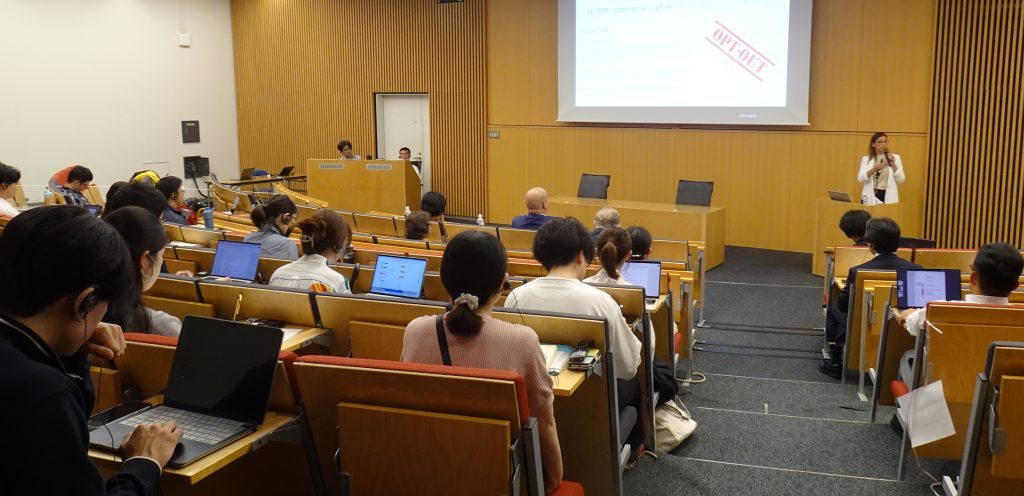
Lecture by Professor Alexandra Bensamoun, Professor
Université Paris-Saclay (specialist in intellectual property and IT)
Member of French inter-ministerial committee dedicated to AI
Moderator: Yuko Kimijima, Professor
Faculty of Law and Graduate School of Law, Keio University (Intellectual Property Law)
Director, Cyber-Physical Sustainability Center (CPS Center)
Program
15:00 – Venue opened
15:30 – Opening remarks
15:45 – Lecture “AI and Intellectual Property: Focusing on European and French Strategies”
17:00 – Q&A session
17:20 – Closing remarks
17:30 – Event ended
Opening Remarks
Before the lecture began, Keio University Vice-President Juro Iwatani, professor of Japanese legal history at the Faculty of Law, and Eric Molay, science and higher education cooperation attaché at the Embassy of France in Japan, gave opening remarks.
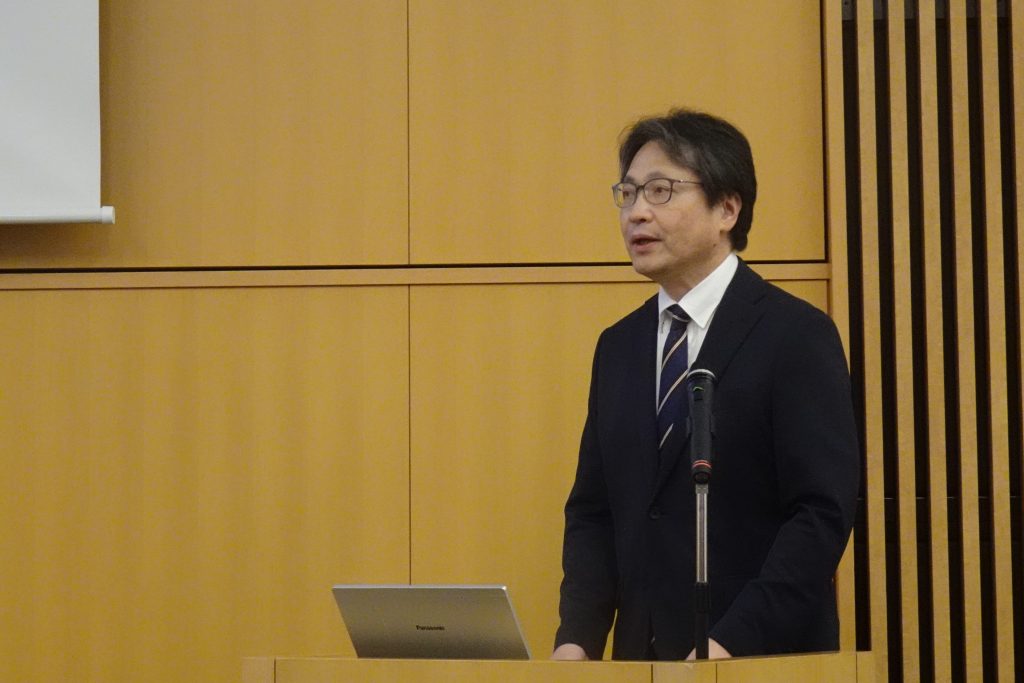
Vice-President Juro Iwatani began by touching upon how Yukichi Fukuzawa, the founder of Keio University, first introduced the copyright system to Japan in 1868. He continued by expressing his excitement to listen to Professor Bensamoun’s lecture on French AI policy, an issue contextualized by the recent developments regarding generative AI and its ability to invent and create like humans, as well as the problems that presents. He concluded his remarks by showing gratitude to everyone in the audience for participating in the dialogue for Legal Day.
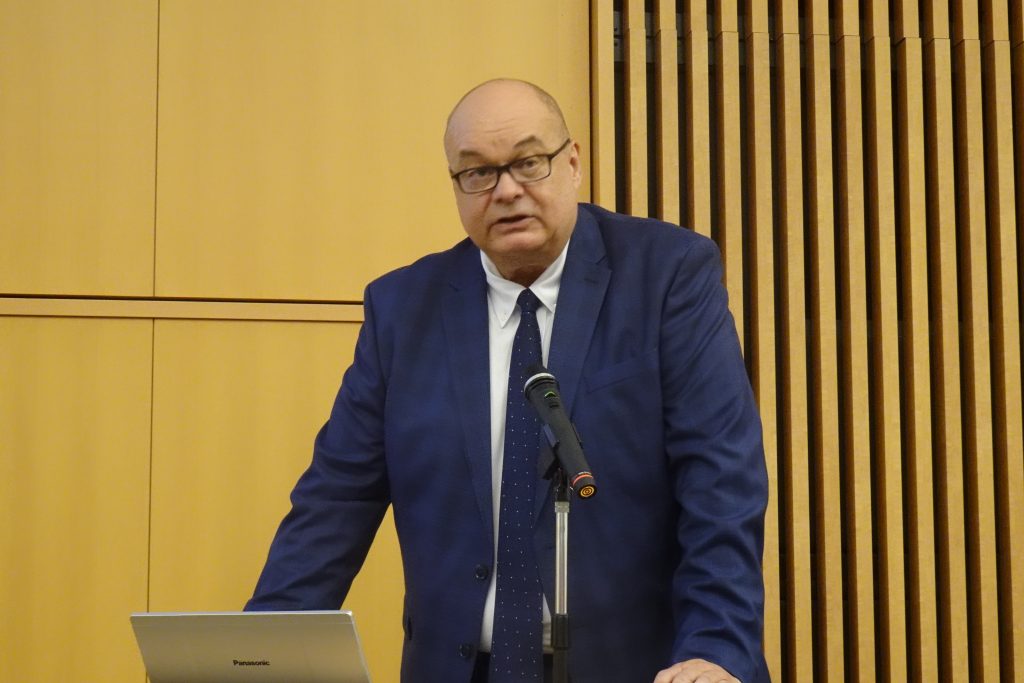
Eric Molay explained that the event was to commemorate Legal Day, a French tradition inspired by the Nuit du Droit (law night) which has been celebrated since 2017 by the French Constitutional Council each year on October 4th, the anniversary of the creation of la Constitution de la Cinquième République (Constitution of the Fifth Republic) in 1958. He remarked that Legal Day, by extension, is observed by all relevant French institutions and government agencies.
Lecture
Professor Bensamoun’s lecture was titled “AI and Intellectual Property: Focusing on European and French Strategies.”
The lecture went over the EU and French strategies regarding AI and intellectual property, with a particular focus on the relationship between AI and copyrights, and the intersection of AI development and cultural creation.
In her lecture, she divided the relationship between creation and AI into two stages: the “upstream” development and learning stage, and the “downstream” generation and application stage of generative AI. For each stage, she discussed the applicable laws and the acts that should be protected by copyright law.
When discussing copyright issues in the “downstream”, Professor Bensamoun spoke about exceptions to the application of copyright law, AI regulation specifics, AI strategies in France, and her own vision for the future.
In regard to “upstream” issues, she brought up the discussion on legal protections for AI-generated output.
She explained that according to the Berne Convention (1886), authors must be human, and the rights to works must be owned and protected by humans. However, the question of whether AI-generated creations should be protected under copyright law remains unresolved and requires further deliberation. Professor Bensamoun also stressed that such legal systems are meant to safeguard “that which humans have created.”
Additionally, with several critical elections set to take place in 2024, measures to prevent misinformation are being called for. She highlighted the importance of ensuring transparency and accuracy of information, including explicitly marking AI-generated content to prevent the potential spread of false information.
In closing, Professor Bensamoun brought up a remark made to her by a colleague who works in information science: Humans take time to do anything and are not particularly precise, but we do excel in intuition. Computers, on the other hand, are fast and extremely precise, but incredibly stupid.” The humorous remark brought a sense of reassurance to the audience as the lecture concluded. During the Q&A session, a variety of questions were raised from both audiences, those attending in person and online. What ensued was a lively Q&A session on topics such as the impact of the “Brussels effect” stemming from EU regulations on AI that Japan, with its underdeveloped laws, should keep an eye on, the development of legal mechanisms to maintain an appropriate competitive environment in the presence of the “GAFAM” big tech giants, how to deal with the use of AI in politics, and policies against deepfake crimes.
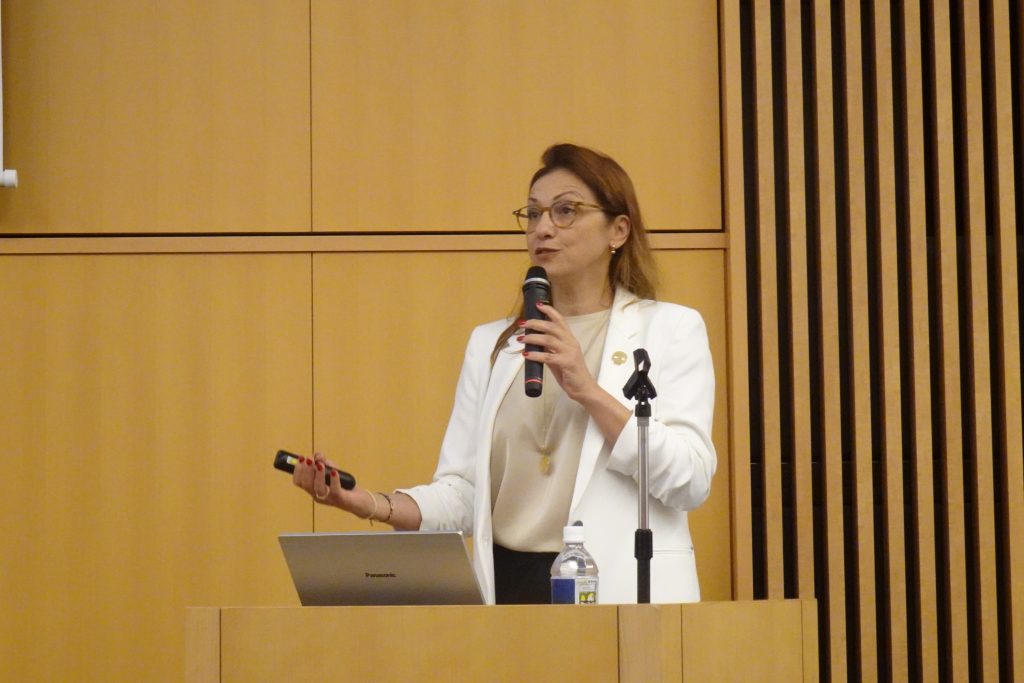
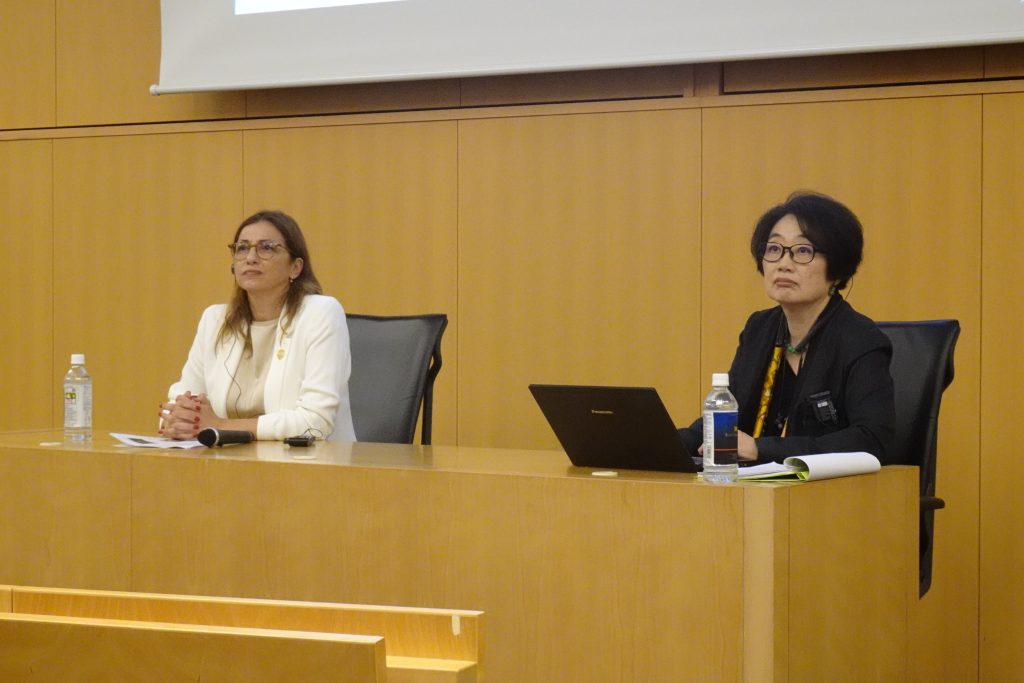
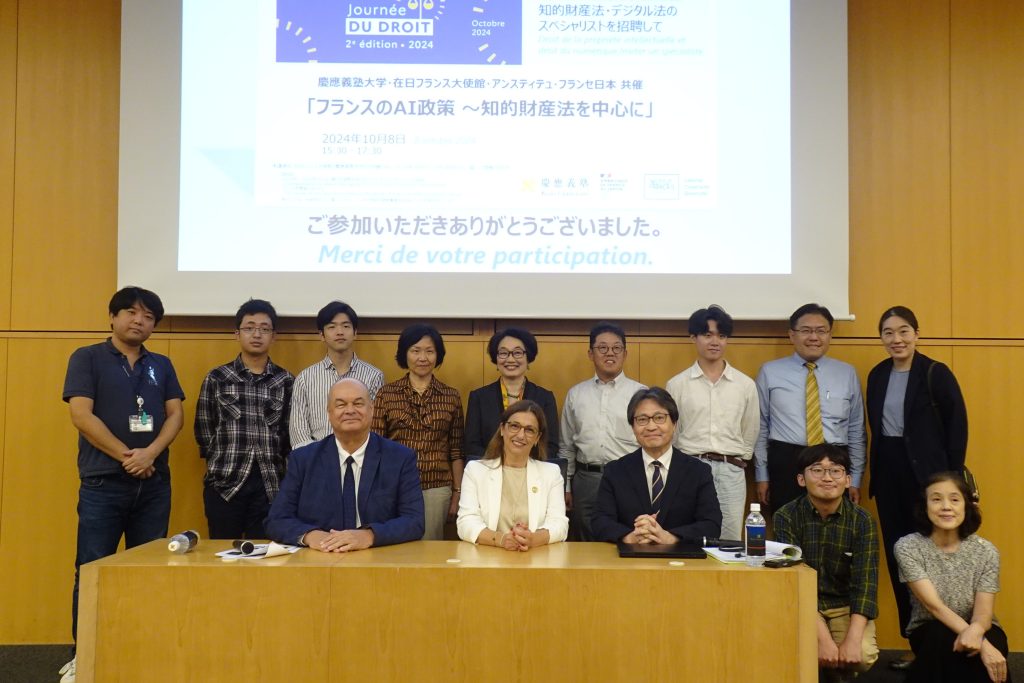
*Affiliations and positions listed are those at the time of the event.
This event received support from the JST “Moonshot R&D Program” (project number JPMJMS2215), as part of the Cyber-Physical Sustainability Research Group.

